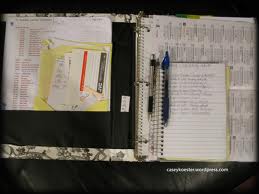If you are like me, you have notes on your book scattered all over the place. Any time I get an idea, or figure out how/why something works or takes place, I scribble it down so I don't forget. That's why there are notebooks in the car, van, kitchen, under my bed, in my purse, etc. There is one problem with this method.
What if you can't find that one note you NEED?
For instance, a couple of months ago, I wrote the BEST back jacket cover for my shiny new idea EVER. It was truly perfect in every way. I remember writing it in a yellow notebook (all my notebooks are yellow to differentiate from my daughters' notebooks). I remember going to put it on my blog page for shiny new idea and then chickening out because "what if someone takes this and writes it before I do?"
Now, I'm ready to write said shiny idea and I Can't. Find. The. Notes.
I've tried to recreate that perfect book cover and it keeps falling flat. I'm devestated.
I don't want this to happen ever again so I'm creating an electronic and a physical Story Bible for each of my story ideas.
I got this idea from
Marne Ann Kirk, author of “The Fae Dragon Chronicles: Love Chosen” coming Soon from
Crescent Moon Press.
This is going to keep me organized and it has the added bonus of keeping the little threads/items/places/info/ etc accurate in my story. No more wondering, "when did she loose the locket?" I can look in the story bible and find the answer.
For the electronic version, I'll be using
Scrivener (because it's so lovely shiny and easy to use.) There are lots of other programs out there and I've used
yWriter (which is free). You can also just use the folder system and save everything on your computer.
However, since I'm very much a visual
and tangible type person, I'm going to print out everything I type up and put them in a binder for each story. (I like flipping through pages.) Sendek will obviously be the largest as a series binder. It will have dividers for the different books in the series as well.
You can put anything you want in this Bible. Here are some basic suggestions:
- Synopsis
- Outline
- Back Jacket Blurb
- Query letter
- List of Characters
- Individual character sheets
- List of Settings
- List of Creatures
- Important vocabulary (especially if you are writing a novel that involves technical terms: medical, military, science based, etc)
- Rules/Laws (How things work in your world. Great for dystopian, magic, etc.)
- List of important Items you need to keep track of in the story
- Time line of events
- Story-Board
- Scene by scene list of characters--I'm doing this to make sure I'm not spending too much time with one character while the reader might be wondering, "What happened to so-and-so?"
- Map of your world, city, etc
- List of subplots, whose involved and how they relate to the main plot
- Plot Tent
- Pictures of actors that remind you of your characters
- Scene collages
- Sketches
- Any research you do to make your story believable
What else can you think of? Does this help? Do you have any questions?







